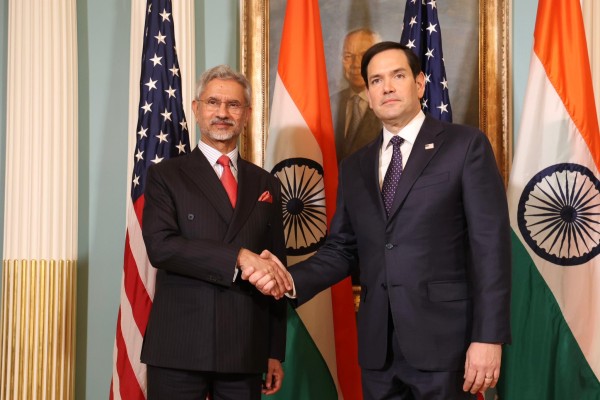
External Affairs Minister S Jaishankar briefed the media in Washington DC on the meetings he had and the takeaways.
As he pointed out, “It was a great honour for me to represent Prime Minister Modi and the Government of India. The visible chemistry between Mr Modi and Mr Trump reinforces the systemic trust, it raises the bar and sets the sight on bigger goals.
“It was very clear that the Trump Administration was keen to have India present at the inaugural and they had prioritised the bilateral relationship. The PM had an early phone call with Trump and i had come last month and made initial contacts with the National Security Adviser Waltz.”
In the meetings, it was evident they would like to build on the foundation of the ties which the first Trump Administration had contributed to … President Trump and Prime Minister Modi had taken a lot of initiatives and seen them mature.”
“I met Secretary of State Rubio and National Security Adviser Waltz. We approached the world with a clear sense of our national interest and mutual benefit. I think we have a strong degree of trust, a high level of convergence of our interest and while we serve our national interest and build our bilateral ties, on regional and global issues there is a lot of good we can do,” he said.
On bilateral ties, he said there was broad brush coverage but there was consensus that the two countries need to be more ambitious and interactions should be intensive. For instance, how to make business mobility, education, technology, defence and security easier.
“There is the burden of regulation and process,” Jaishankar noted, “so that understanding and recognition is there and we need to make this smoother so we achieve our shared objective.
“I flagged the concern in India about delays in visas and ties not well served if it takes that many days to get a visa. Ultimately those delays do impact business, affect tourism and constrain people to people ties which is the foundation of our relations.”
We would like to translate our trust into an actual partnership, so in technology or industry or education or in defence we are open in all domains the level of enthusiasm and comfort are very strong, so we were competing with each to see how much faster and further we can go
This was the first Quad meeting for Secretary Rubio and Japan’s Foreign Minister Iwaya, so it was basically stock taking. There is a strong sense the the administration will reciprocate India’s desire to take the Quad further and intensify its activities
There was what Jaishankar described as an “animated exchange of ideas and the sentiment in room was very much that the Quad is a collaborative activity and important to refresh it and keep doing more. This year India will host the Quad summit so between now and the summit what are the new ideas and fresh activities we could contemplate.”
Jaishankar said the challenge is how to do regular things better, with a degree of openness to look at India’s concerns about process issues and delays. In his view, there was a positive response.
“If you have two leaders who are focused on effective governance and speed of governance, naturally that will percolate into the relationship.”
The issue of mobility of people came up. India supports legal mobility and is of the view that in a global workplace, Indian skills must have the maximum opportunities at the global level.
By the same token, India is opposed to illegal migration which is not desirable. India has also taken the view that it will take back those of its citizens who are not in the US (or elsewhere) illegally.
There was a brief discussion on Bangladesh but the minister said “it would not be appropriate to go into details.”
He said the arson attack on the Indian consulate in San Francisco is a serious matter and India expects accountability and would like to see people held responsible.
Thirty eight years in journalism, widely travelled, history buff with a preference for Old Monk Rum. Current interest/focus spans China, Technology and Trade. Recent reads: Steven Colls Directorate S and Alexander Frater's Chasing the Monsoon. Netflix/Prime video junkie. Loves animal videos on Facebook. Reluctant tweeter.




